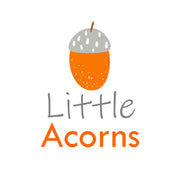Montessori
There are certain key principles of the Montessori movement:
Order and structure Although learning is child-led, children need order and structure to thrive. Everything has its place, and children take responsibility for putting one activity away before moving on to another.
Sensory learning Children learn through the senses, so Montessori puts emphasis on preparing teaching materials with great care. For example, children use proper ceramic tableware and glasses, rather than plastic child-safe ones.
Freedom The single most important factor in child development, according to Maria Montessori. The Montessori environment provides experiences, activities and environments that encourage children to follow their natural instincts.
Sensitive periods The Montessori movement says that children move through ‘sensitive periods’ when they’re particularly receptive to learning a new skill, such as reading, writing or counting.
Discipline is seen as something that should come from inside, rather than being imposed. Teachers focus on helping children develop social and emotional skills. Rewards and punishments are not used, and teachers will only step in when a child is behaving in a disruptive or upsetting way.
You can read more about the Montessori approach here.
Sorry, there are no products in this collection
